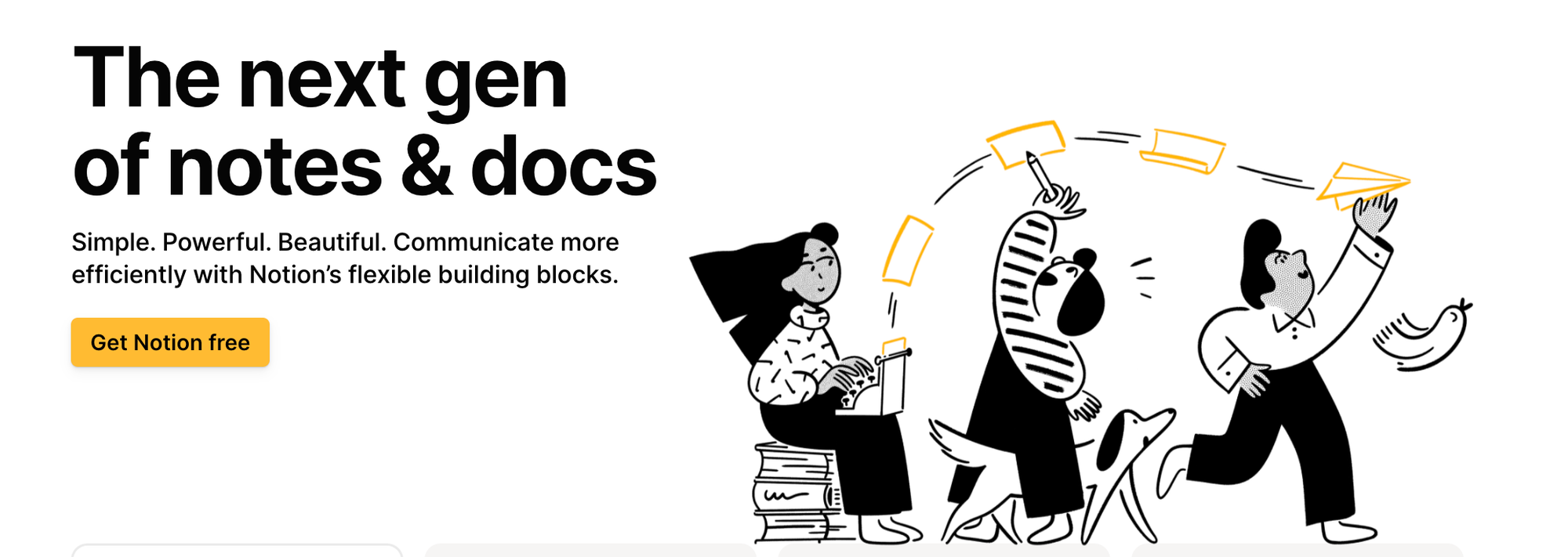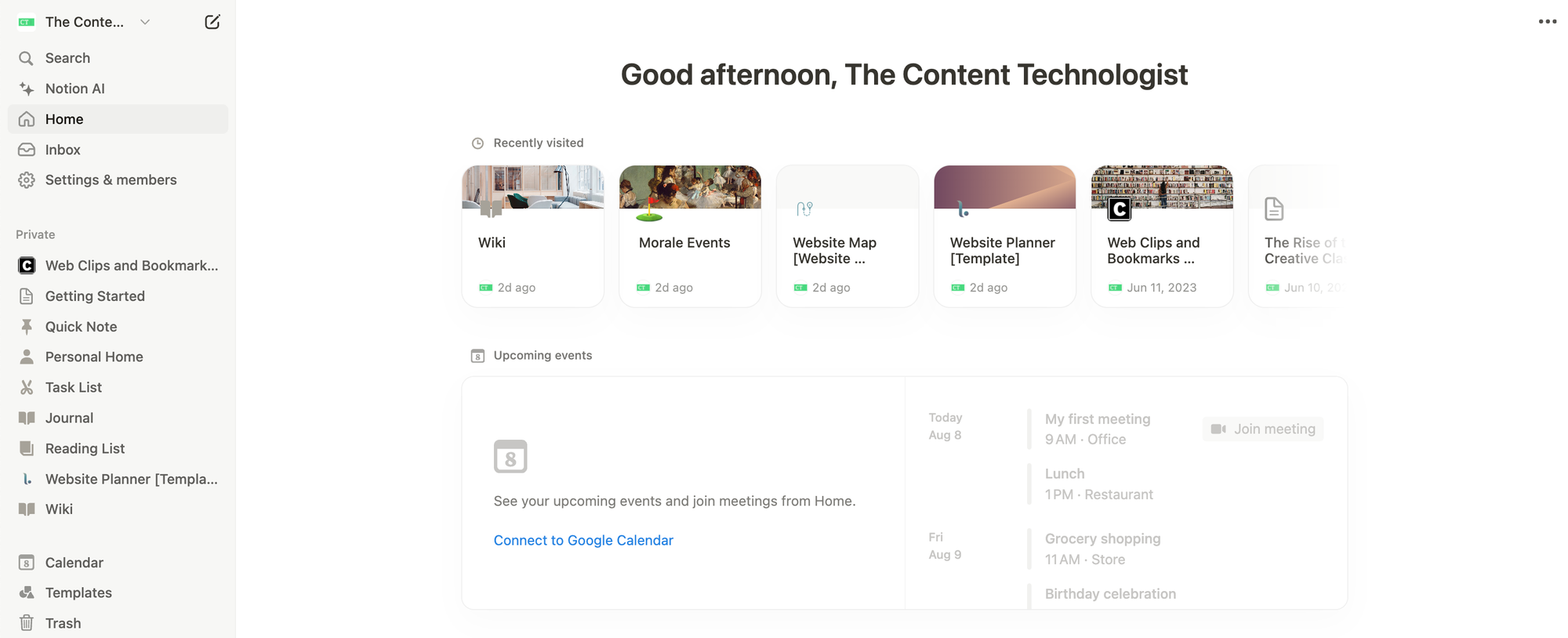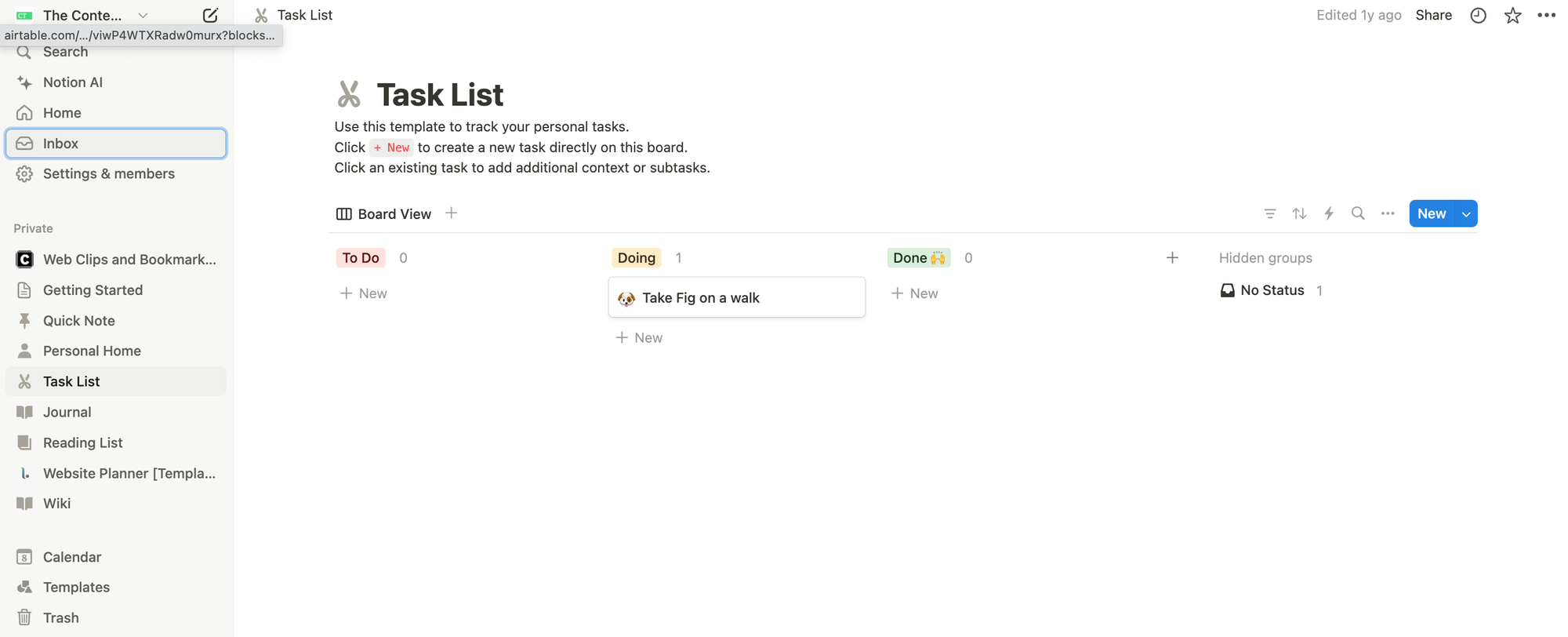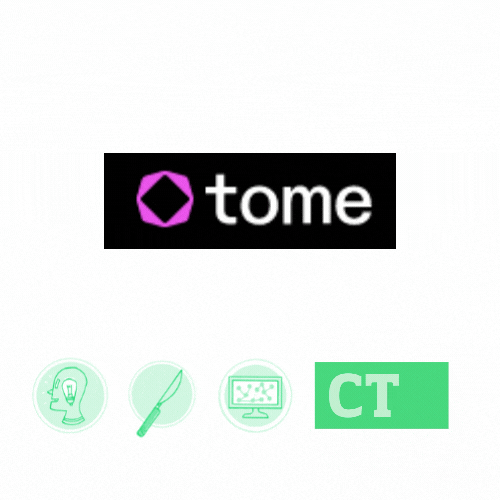In the second half of 2024, we're revisiting and revising our older reviews and content. Up first for revision: Notion! Here's the original review.
The Content Technologist may receive a percentage of affiliate revenue from review links, which helps cover the costs of producing an independent publication. If this review nudged you to seriously consider purchasing this software, we encourage you to click the links on this page before you buy.
Five years ago, Notion was an up-and-comer in the connected note-taking and project management space. I compared the tool's emergent capabilities to Kendrick Lamar's artistic innovations in rap: It layered a new level of complexity on the ideas behind its predecessors. Combining the best of Google Docs, Airtable, and Trello, Notion bet that type-A digital natives would enjoy a linky notebook. At the time, I enjoyed its big ambitions, couched in a back-to-basics interface.
In the past few years, after heavily targeting Zoomer students and affiliate influencers, Notion's valuation has skyrocketed to $10B. It's one of many productivity and note taking apps attempting to be everything to everyone, loading on templates and features, ostensibly so its users will never abandon the tool for greener pastures.
In praise of the left-hand desktop nav: The most successful software innovation builds on existing user habits
For many, our work-life balance can be siloed into our devices: our phones are for play and light communications, and our laptops are for deep work. Recognizing this, Notion designed for desktop-specific use cases and left its mobile app as an afterthought. It defied late 2010s mobile-first thinking by remembering that users are smart humans who have established digital habits and experience different needs at different times. Desktop-first programs aren't going away.
Notion's biggest innovation — and general contribution to digital content design — is its embrace and evangelism of left-side navigation. Before Notion, left-hand nav was a quirky way to distinguish digitally that your brand enjoyed tables of contents and other conventions of print. As mobile-first apps became the norm, user experience design shed complex navigation across the board in favor of the single-column feed.
The rising popularity of left-hand navigation for work-oriented use cases can likely be traced back to Notion's embrace of the format. Similarly, its custom marketing illustrations commissioned from cartoonist Roman Muradov inspired all manner of SaaS marketing copycats.*

*What the copycats fail to realize is that blatantly co-opting the style of someone else's custom illustrations dulls the effect and makes your brand and product appear unoriginal. If you want the look and effect of a custom illustrator, hire a cartoonist to create custom illustrations.
Signed, the spouse of a cartoonist.
What Notion gets right: Introducing new generations to the building blocks of the web
Notion's strengths are in its no-code templates and bare-bones approach to organizing complex information. Like many contemporary note-taking tools, it forces users to write in discrete blocks of text or ordered lists, rather than the standard paragraphs of old-fashioned word processors. (Indents: who needs 'em?) It encourages users to build in links and connections rather than drag-and-drop folders. I've been deeply impressed at Notion users who build wikis and websites that look like they would be at home on a 1999 usenet... but still attract a fair amount of visitors.
It's a superpowered notebook for folks who want to be organized and build app-like project management systems but don't want to reinvent UX design. Unlike its more colorful companions, Notion keeps the out-of-the-box experience black-and-white, with only emojis to pepper in some personality.
In Reddit and consumer reviews, Notion is beloved for its complexity of formats and flexibility to connect disparate types of content at a relatively low cost compared with Airtable, Smartsheet, and more enterprise tools.

The drawbacks of Notion: It's not for aesthetes or drag-n-droppers
Notion's online detractors dislike the large investment of time required to set it up properly, along with a perceived slow time to load.
As with any tool, it has limitations, especially with collaboration: unless you're an evangelist who has deeply customized interactions and added your own flair, Notion can feel basic, bland, and unforgiving. The emojis I once described as "shabby-chic" now look quaint and dated, like Mason-jar-and-burlap weddings.
For larger teams with disparate skills, the shift to Notion is a big lift. It pares down the delightful aspects of many contemporary project management tools and emphasizes custom configuration. If not everyone on the team is into Notion, its implementation can feel like a chore. As with any centralized folder-based server system, Notion requires champions to care and maintain its structure, which will not feel intuitive to the less app savvy.
Someone on a Notion project management team will likely complain that the information gets out of hand, no matter how many new templates are added. Its AI search feels tacked on, information can get lost, and I would not recommend it for large-scale team organizational project or knowledge management.

What was Notion made for? Complex but time-bound projects
I do, however, recommend Notion for small-group collaborations on time-bound projects: if you're building the Minimum Viable Content for a new website, compiling all necessary information for a short film, or creating a centralized hub for everything you're learning in college or graduate school, Notion could be a life-saver. It's not yet a forever-tool, but an affordable stepping stone toward more enterprise mind-mapping, note-taking, and project management software.
Like Kendrick Lamar, Notion attracted haters as it grew in popularity, but its fans still hold dear its complexity and original approach.



